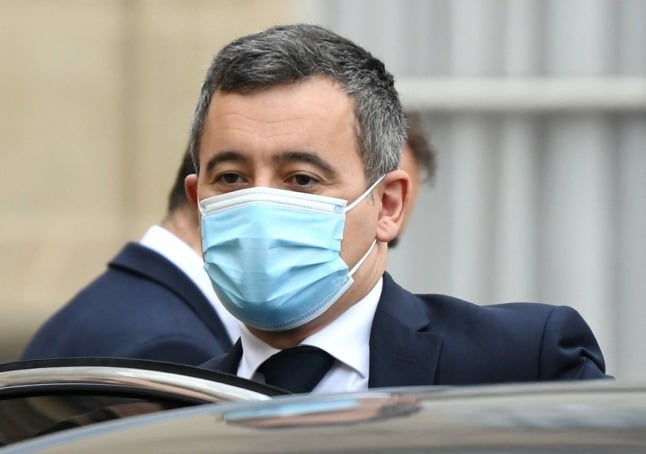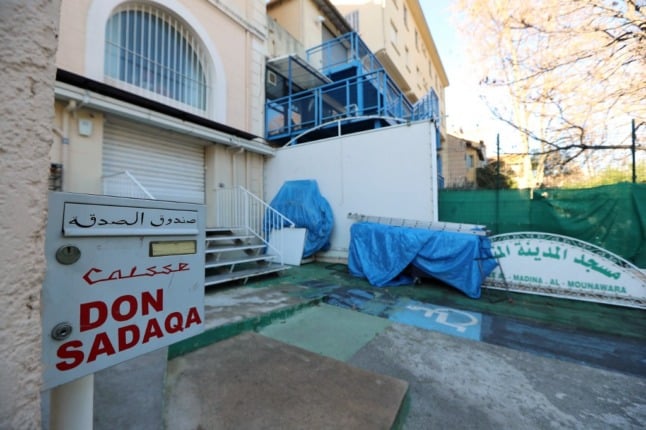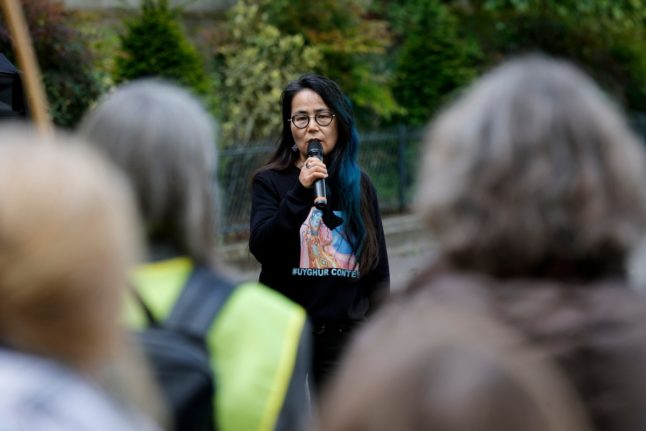On Wednesday, a mosque in Cannes was closed on the orders of Interior Minister Gérald Darmanin because, he said, of anti-Semitic remarks made there and because it was also guilty of supporting CCIF and BarakaCity, two associations that the government dissolved at the end of last year for spreading “Islamist” propaganda.
READ ALSO French minster orders closure of Cannes mosque over anti-Semitic remarks
The closure in Cannes comes two weeks after authorities provisionally closed a mosque in the northern area of Oise because of what they said was the radical nature of its imam’s preaching, the latest in a string of closures.
Can the government close places of worship?
France is a secular state and the government has no religion. Public officials are barred from even wearing clothing or jewellery that indicates their faith – a long-standing policy that has caused no small amount of friction from time to time.
But it does have the power to close churches, mosques, synagogues and other places of worship in certain circumstances.
As with any building, the government can step in if a place of worship is structurally unsound and dangerous, while religious organisations are obliged to follow rules around employment, health and safety and – if serving food or drink to the public – hygiene.
Likewise, religious groups enjoy no special treatment when it comes to criminal investigation – a Catholic archbishop who said that priests should not inform police about sexual abuse if they hear it in confession was recently summoned for a meeting with Darmanin and reminded that “Nothing is above the laws of the Republic”.
Mosques
The mosque closures, however, are being done under a more recent law.
The loi SILT (Sécurité Intérieure et Lutte contre le Terrorisme), brought in to combat fundamentalist Islamism, came into force in 2017 and allows the government to close places of worship for up to six months.
The law states that “for the sole purpose of preventing the commission of acts of terrorism, the representative of the State in the department, or in Paris the Police Préfet, may pronounce the closure of places of worship in which the remarks that are held, the ideas or theories that are disseminated or the activities that take place provoke violence, hatred or discrimination, provoke the commission of acts of terrorism or glorify such acts.”

The duration of the closure “must be proportionate to the circumstances that motivated it and may not exceed six months.”
The State must give its approval before the place of worship can reopen. Closures, though individually limited to six months, can be renewed.
For this, a new religious association must take over the management of the place. Control measures can also be put in place, such as the installation of surveillance cameras to film services and preaching.
If necessary religious leaders at the venue may be expelled.
How often is this power used?
Its use seems to be increasing.
In December 2020, Darmanin placed 76 mosques under investigation as part of what he described at the time as a “massive and unprecedented action against separatism”.
There have also been separate actions, such as the closure of the mosque in Pantin, north of Paris, after mosque officials shared videos relating to the beheading of schoolteacher Samuel Paty. The mosque has since reopened with a new leadership team.
The Macron government has passed a sweeping bill aimed at preventing ‘separatism’. Developed in consultation with Muslim leaders in France it contains a raft of measures including wider provision for local funding of places of worship and a charter of ‘republican values’ for all groups which receive public subsidies.
ANALYSIS What is in Macron’s ‘anti-separatism’ law?
Going alongside the bill, Darmanin’s actions are aimed at mosques where radical preaching has been reported.
How do locals react to the closures?
In the case of the mosque in Cannes, which is to remain closed for at least two months, so far there has been silence.
The rector of the mosque, Mustapha Dali , has not yet reacted to this closure. But, Following the terror attack in Nice in July 2016, he condemned “barbaric fanaticism” in a publication on social networks.
Cannes town hall said in a press release: “This decision comes after careful research work by the State services and multiple reports made directly by the municipality of Cannes since 2015.”
It went on: “We know that the vast majority of Muslims who frequent this very old mosque do not share its drift; some had also alerted us.
“It is therefore up to the emergence of new leaders respectful of the French Republic and the country so that the place of worship can then reopen”.
In the case of the Pantin mosque, several members of the community had reported becoming alarmed by the preaching, even before the video was shared.
It has since reopened without its former director and work is ongoing on a €1 million building project.
“It’s a good thing that the mosque can reopen. The director made an inexcusable mistake in sharing this video. But punishing all the worshippers was unfair,” said the Socialist local mayor Bertrand Kern.



 Please whitelist us to continue reading.
Please whitelist us to continue reading.
Member comments